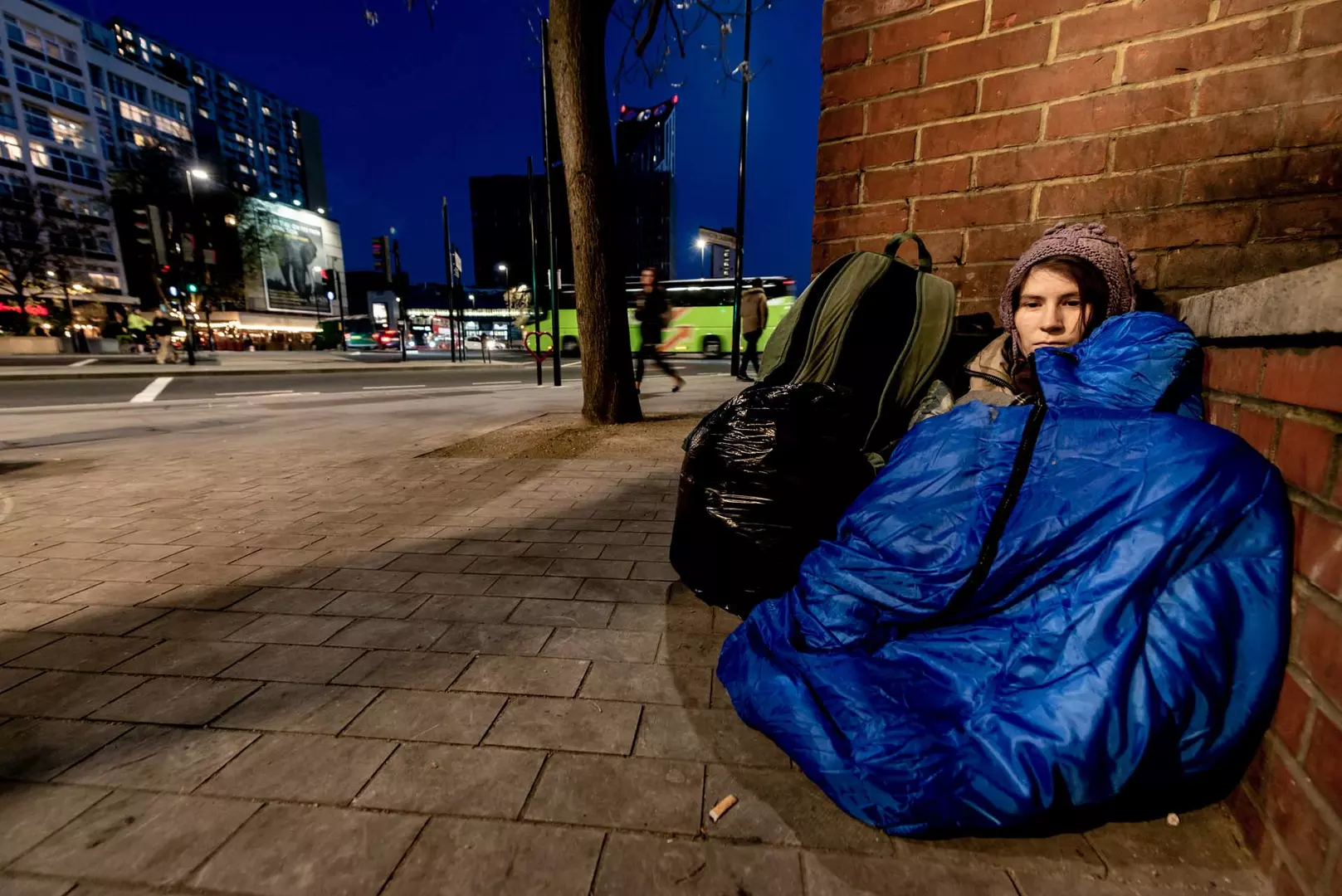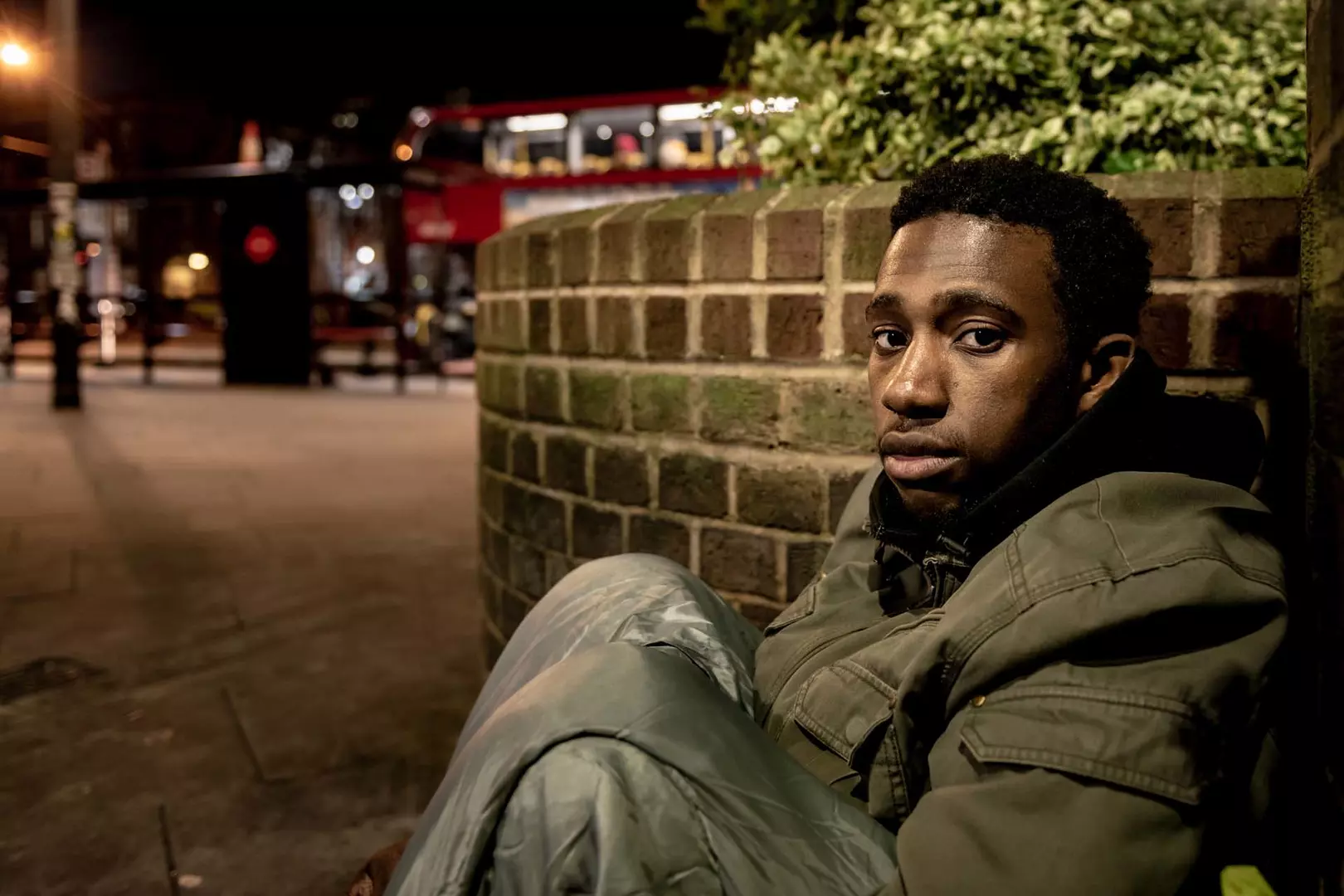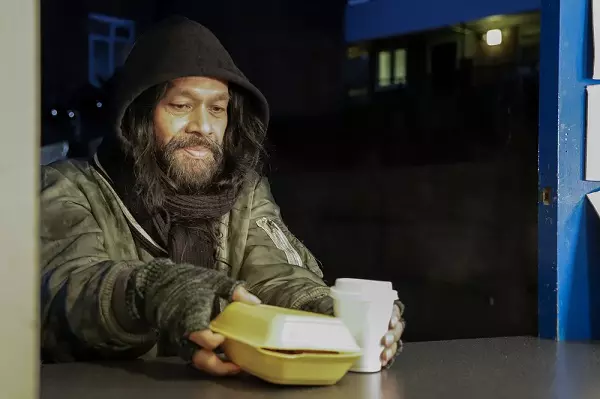New rough sleeping figures hide a future homelessness crisis
published on 30 Oct 2020
The Salvation Army is warning that figures showing a drop-in people sleeping rough does not mean we have averted a homelessness crisis.
The CHAIN figures show that 3,444 rough sleepers were recorded by outreach teams in Greater London between July and September 2020 (a 14 per cent drop on the same quarter last year), with more than half being new rough sleepers (1,901 - an eight per cent decrease on the same quarter last year).

Lorrita Johnson, The Salvation Army's Director of Homelessness Services, said: “While we are delighted that the figures show fewer people slept rough between July and September 2020, this short-term gain could still lead to a long-term crisis unless the Government acts now.
“November’s one year Spending Review is the Government’s chance to ensure it does not reverse the gains made by the ‘Everyone In’ initiative, which protected rough sleepers from the pandemic.
“Getting ‘everyone in’ is only part of that solution as people need support to overcome the reasons they ended up rough sleeping in the first place. Nobody chooses a life on the streets, but they find themselves sleeping rough for lots of complicated reasons, including poor mental health, bereavement, unemployment, fleeing abuse and addiction.
“Without sustained support, our experience tells us that these vulnerable people may end up back on the streets.
“In addition to people sleeping rough, this crisis also covers people forced to live in council-funded emergency accommodation like B&Bs. The economic fall out of the pandemic will lead to fewer jobs and greater personal debt which will increase levels of homelessness, leading to more families sharing cramped temporary accommodation.
“Not only will this be devastating for vulnerable families, it will also be incredibly expensive. In 2019/20 alone, local authorities spent over £1 billion on temporary accommodation [1]. The Government must act bravely and invest now to prevent a bleak future for thousands of people.
“Our recently published report 'Future-proof the Roof' sets out a blueprint for a new approach to investment in homelessness and rough sleeping, which will allow the Government to maintain the recent progress made through the ‘Everyone In’ initiative and provide added protection against the wider economic downturn caused by Covid-19.
The Salvation Army is calling on the Government to begin this process at November’s Spending Review.”

Key recommendations from Future-Proof the Roof include:
- Introducing a CHAIN type recording system in city regions outside of London with high levels of rough sleeping, so that the Government can accurately calculate the level of investment required to end rough sleeping during this Parliament in line with its manifesto commitment.
- Using the upcoming one-year Spending Review to reaffirm its commitment to the ‘Everyone In’ initiative by ensuring that its investment in homelessness and rough sleeping over the coming financial year does not fall below the £700 million invested in 2020/21.
- Ensuring that the social security system prevents rather than causes homelessness and rough sleeping, by maintaining the recent increase in the Local Housing Allowance (LHA), so that people can afford to rent at least three in every ten of the most affordable properties in any given area.
Additional information
New data published last Thursday shows that in 2019/20 local authorities spent £1.2bn on temporary accommodation, with the majority going to private landlords.
